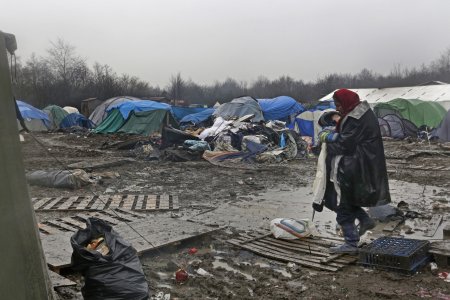Op-ed
The Calais “jungle” today: France’s shame
Anne Chatelain & Michaël Neuman
To cite this content :
Anne Chatelain, Michaël Neuman, “The Calais “jungle” today: France’s shame”, 5 décembre 2015, URL : https://msf-crash.org/en/rights-and-justice/calais-jungle-today-frances-shame
If you would like to comment on this article, you can find us on social media or contact us here:
Contribute

